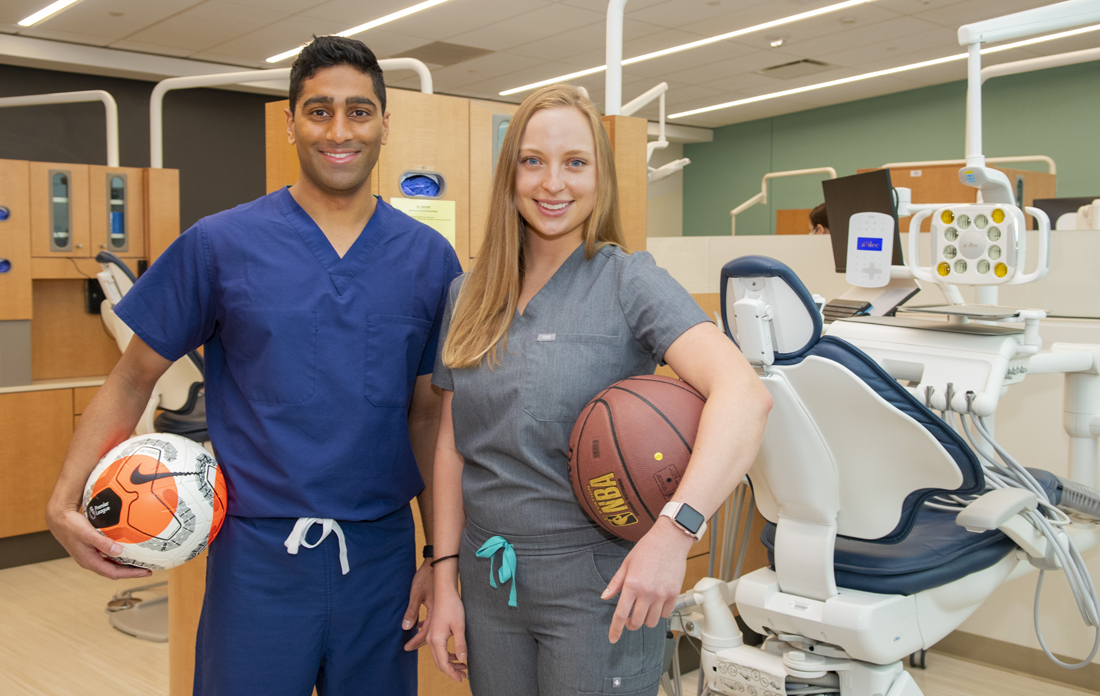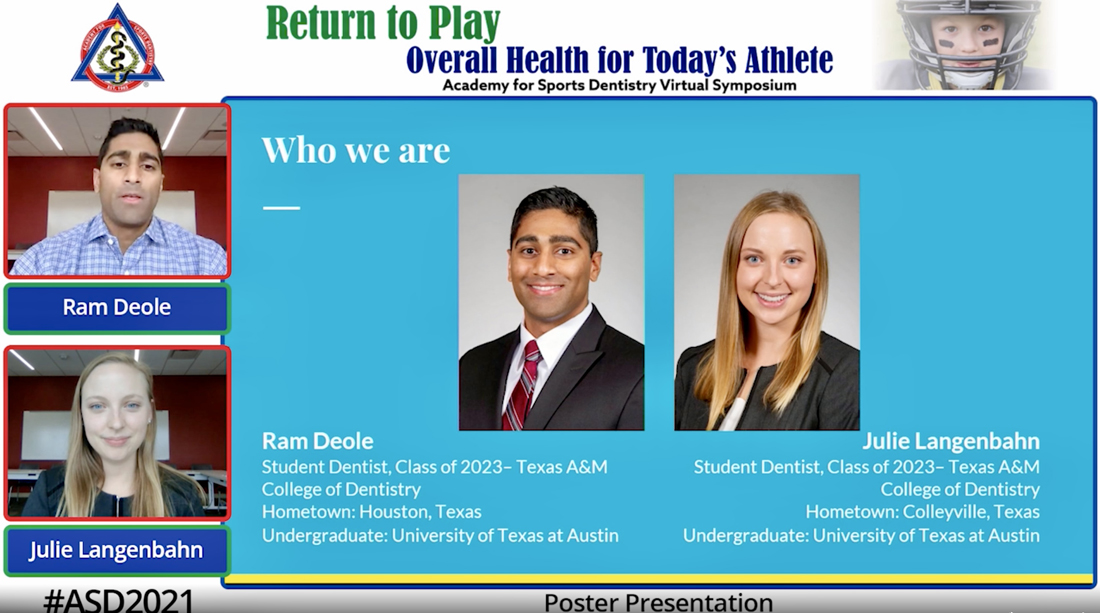Dental injuries and athletes

Texas A&M College of Dentistry third-year dental students Ram Deole and Julie Langenbahn had a question: How much do collegiate athletic trainers know about what to do when an athlete loses a tooth, gashes their tongue or chips an incisor?
They began pursuing answers through research. Deole and Langenbahn surveyed 200 athletic trainers at 18 Texas universities and found that only 15% would feel extremely comfortable managing dental-related sports injuries. At the same time, 95% of respondents would be open to receiving additional dental education.
“We learned they had received minimal training on this topic,” Deole says. “The survey also showed that as the seriousness of the dental injury increased, their comfort level in treating it decreased.”
The data provided valuable feedback that could help close the knowledge gap.
“The most interesting fact we learned was that they did want to learn more, and they wanted to hear it from a dentist,” Langenbahn says. “They wanted to know what they could do to be better at managing these injuries.”
Deole and Langenbahn propose having dental students be part of the solution by presenting continuing education sessions to Dallas-area athletic trainers. This could include explanations of the protocol for immediate management of specific dental injuries and developing treatment guides for trainers to have on hand, among other topics.
As the current vice president and external relations chair, respectively, of the International Association of Sports Dentistry student group on campus, Deole and Langenbahn say a project like this merges two of their passions: dentistry and sports.

They became friends while doing research in 2019 as participants in the college’s Summer Predoctoral Student Research Program. Teaming up on this new project garnered the duo a first-place award and an invitation to present their findings at the annual symposium of the Academy for Sports Dentistry.
When they learned last fall about the Academy for Sports Dentistry’s research opportunity, it was a natural fit. They short-listed potential topics by November 2020, finalized by the end of the year, then began their project in earnest in January with the college’s Institutional Review Board approval process and the development of survey questions. Mentor Dr. Matthew Kesterke, instructional assistant professor in biomedical sciences, was an important source of advice and input, Deole says.
“We did this research because of our love of sports and desire to help athletes,” Langenbahn says. “It was a great way to network organically on a topic we liked. I’m very proud of it because Ram and I saw this from the ground up.”
Since their presentation to the Academy for Sports Dentistry in mid-July, the students have received emails from dentists in attendance expressing an interest in collaborating, according to Deole.
“We like connecting the athletic trainer community to dental professionals,” he says.